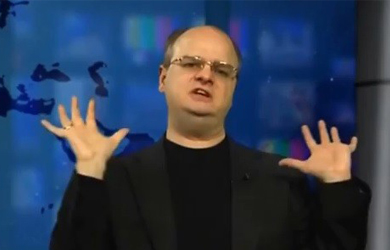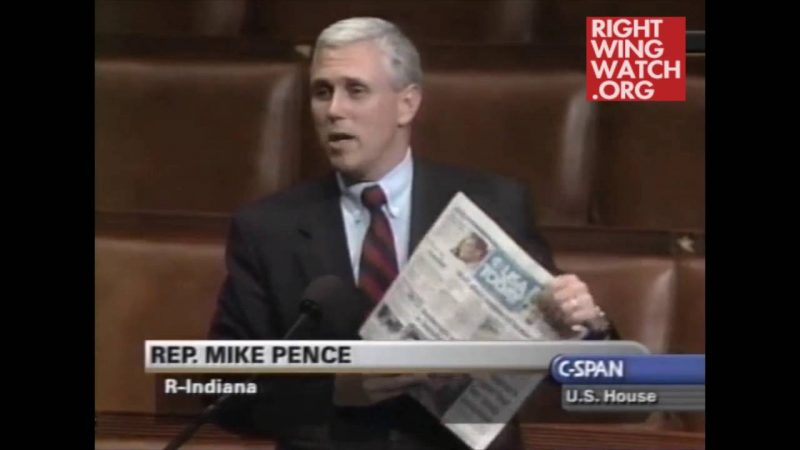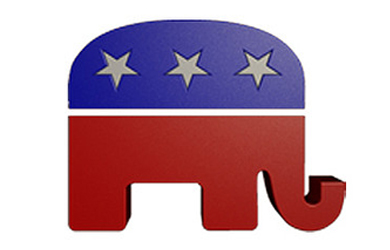Twenty years ago, Mike Pence was wishing for a Republican convention that was a bit more, for lack of a better term, Trumpian. Writing in the Indiana Policy Review, a magazine published by a statewide think tank of the same name that he once ran, Pence lamented that the 1996 Republican National Convention had become “an endless line of pro-choice women, AIDS activists, and proponents of Affirmative Action.”
Instead, Pence preferred the divisiveness of the GOP convention held four years earlier, when Pat Buchanan delivered his infamous “culture war” speech. He blamed the 1996 event’s relative civility for the drop in television viewership from the previous convention.
Pence, now the GOP’s vice presidential nominee, was clearly advocating for a smaller-tent Republican Party, one that would not court African Americans, women or the LGBT community.
“Like it or not,” Pence wrote, “traditional Pro-Family conservatives make up the bedrock of modern Republican electoral success.” This seems to be exactly the strategy the Trump campaign is deploying today, believing they can win without the support of moderates or minorities.
Pence’s attack on AIDS activists was especially odd. Mary Fisher, a Republican who worked in the Ford administration, was the HIV positive woman who spoke at the convention that year. She had previously addressed the 1992 convention in a speech that was ultimately published in the anthology “Words of a Century: The Top 100 American Speeches, 1900-1999.” Norman Mailer wrote that during Fisher’s 1992 speech, “the floor was in tears, and conceivably the nation as well.”
In 1996, Fisher appeared on stage with Hydeia Broadbent, then six years old, who was born HIV positive and abandoned as an infant. Fifteen years later, Broadbent was named one of the “Top 100 African-American History Makers in the Making” by the Grio.
It is doubtful that Pence’s objection was to these specific “AIDS activists.” His objection was likely that at the time, HIV/AIDS was still viewed as a gay issue. Pence clearly did not consider LGBT individuals part of the “pro-family” party he envisioned the GOP to be.
In addition to Pence’s own writing, during his time as president of the Indiana Policy Review, the journal published several anti-gay pieces.
In one item titled “The Pinked Newsroom,” published in the December 1993 issue, the publication lamented that The Wall Street Journal took part in a job fair for gay journalists. The piece claimed that “gaydom” was a “pathological condition” and argued that LGBT editors and reporters should not keep their sexuality a secret because it might slant their coverage. “[T]he more extreme of the gay movement consider themselves members of a sexual determined political party,” the piece explained.
A few months earlier, in August 1993, the journal, with Pence on the masthead, published a piece objecting to the idea of gay people serving in the military. The article, written by Col. Ronald Ray, a senior fellow at the [name foundation], stated that “homosexuals are not as a group able bodied. They are known to carry extremely high rates of disease brought on because of the nature of their sexual practices and the promiscuity which is a hallmark of their lifestyle.”
The article went on to list what the author described as “‘gay’ sexual practices” in great detail. It then claimed that proponents of allowing gays to serve in the military ignore “counter-espionage case histories involving homosexuals who became traitors through blackmail.”
Finally, Ray attempted to link homosexuality to pedophilia by citing NAMBLA and quoting a publication which claimed that “the love between man and boys is at the foundation of homosexuality.”
Reading his own words and those published in a journal with his name on top of the masthead, it’s clear that two decades ago Pence sought to turn the GOP into a party that appealed only to a small base of far-right conservatives.
Sound familiar?







